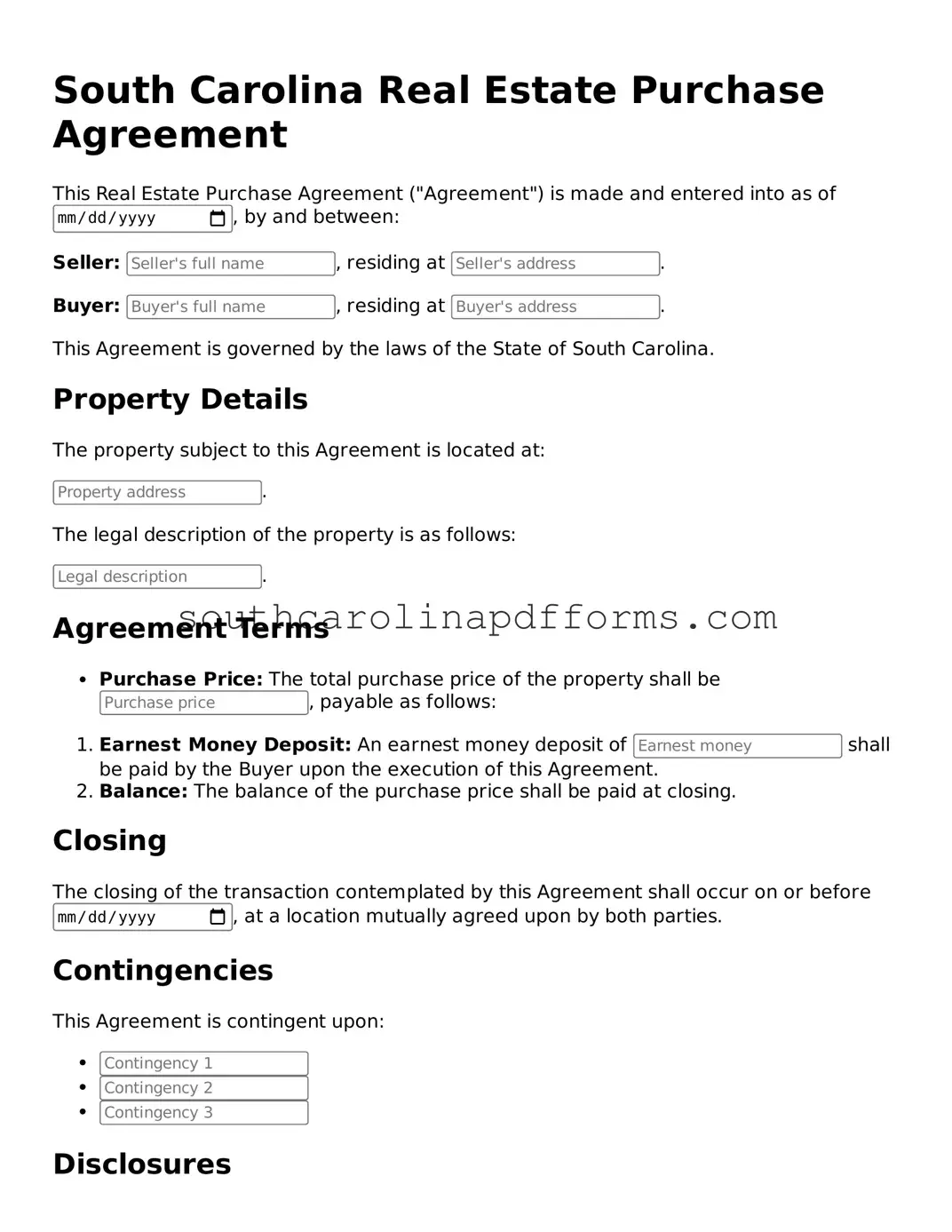Attorney-Approved South Carolina Real Estate Purchase Agreement Document
The South Carolina Real Estate Purchase Agreement is a legal document that outlines the terms and conditions under which a buyer agrees to purchase property from a seller. This form serves as a crucial step in the real estate transaction process, ensuring that both parties are clear on their obligations and rights. Understanding this agreement can help facilitate a smooth and successful property transfer.
Access Real Estate Purchase Agreement Here
